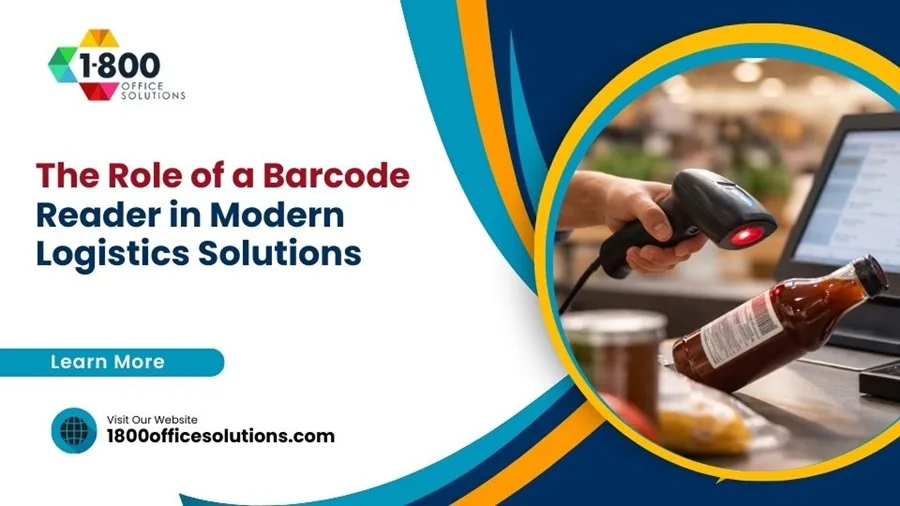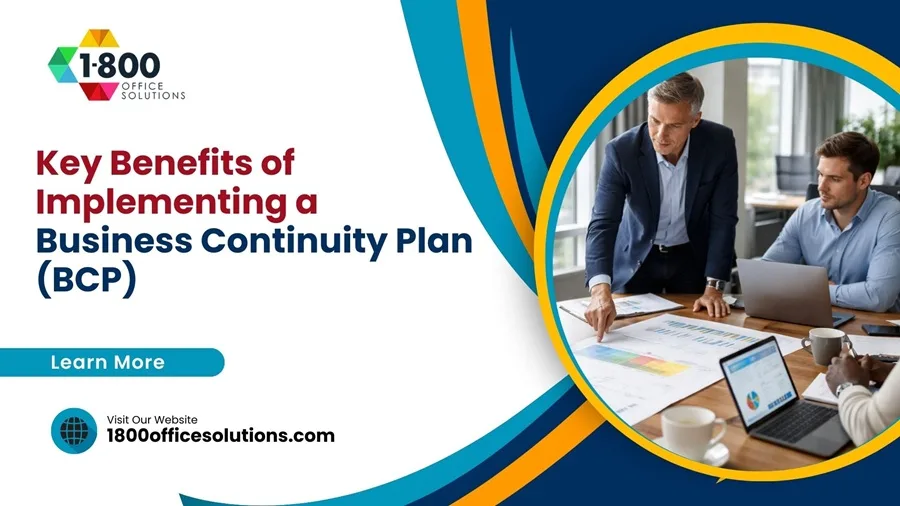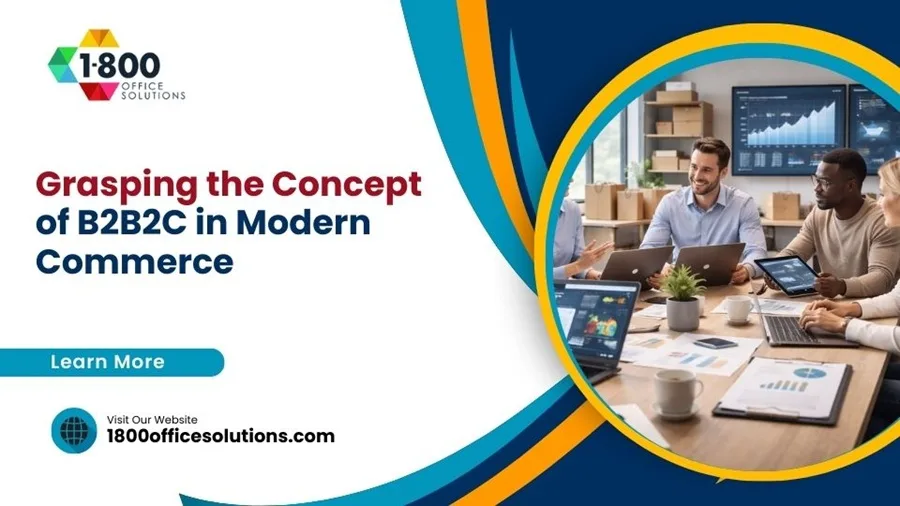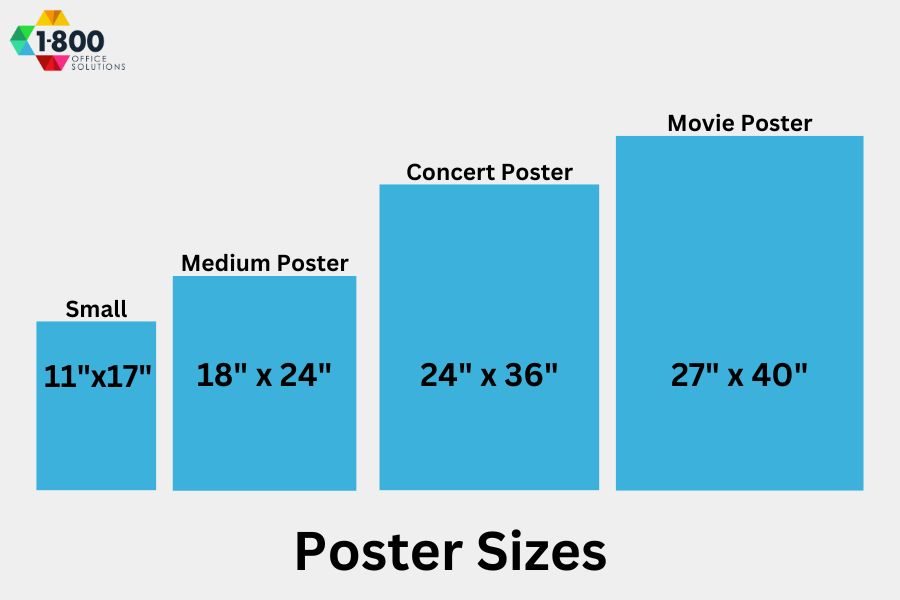Lease a Copier or Printer: Affordable Printer Lease Options | Buy or Lease from Xerox
Why Businesses Should Consider Printer Lease
Staying ahead of the competition often means adopting efficient tools and processes. One essential aspect of running a successful business is having access to the right office equipment, particularly printers and copiers. These devices are indispensable for everyday tasks like printing, scanning, and copying documents. However, purchasing such equipment outright can be a significant financial burden for many businesses, especially smaller ones or those with fluctuating cash flow. This is where printer leasing comes into play.

What is Printer and Copier Leasing?
Printer and copier leasing is a straightforward process that allows businesses to rent office equipment for a specified period rather than purchasing it outright. This practice has become increasingly popular due to its flexibility and the cost-saving benefits it offers. When a company decides to lease a printer or copier, it enters into a lease agreement with a leasing company. This agreement typically outlines the duration of the lease (which can range from a few months to several years), the monthly payment amount, and any additional services provided, such as maintenance and repairs.
Types of Copier Leases
There are generally two types of leases available: operating leases and finance leases.
Operating Leases
Operating leases are often shorter-term agreements that give businesses the flexibility to upgrade their equipment at the end of the lease term.
Finance Leases
Finance leases are longer-term agreements that eventually allow the business to own the equipment at the end of the term, usually for a nominal fee.
Why Businesses Choose to Lease Instead of Buy
When deciding whether to buy or lease an office copier or printer, many businesses prefer leasing due to its financial and operational benefits. Leasing a copier or printer avoids large upfront costs, which is especially helpful for small businesses. Copier lease agreements spread payments over time, making it a cost-effective option for maintaining cash flow.
Leasing also provides flexibility, allowing businesses to upgrade their copier and printer at the end of the lease term. This ensures they always have access to the latest technology, whether they need a multifunction office copier or printer with scanning capabilities.
Cost-Effective Solutions for Small and Large Businesses
The major advantage of leasing is the ability to control and predict costs. When a business buys a copier or printer outright, there are often hidden costs associated with maintenance, repairs, and eventual replacement when the equipment becomes outdated. Leasing eliminates many of these uncertainties.
For large businesses or corporations, leasing provides a scalable solution that can be adjusted to meet changing needs. If the business expands and requires more printers or copiers, it can easily add them to the lease without having to make a significant upfront investment. Similarly, if the company needs to downsize, it can often renegotiate the lease terms to reduce the number of machines, ensuring that the business only pays for what it needs.
Predictable Monthly Costs and Lease Payments
Leasing office equipment offers the advantage of predictable monthly expenses, making budgeting easier. Instead of paying a large upfront cost for a copier or printer, businesses can spread payments over the lease term, preserving cash flow. This predictability is crucial for financial planning, especially for small businesses with tight budgets.
Leasing also often includes maintenance and repairs, reducing the risk of unexpected expenses. The leasing company handles any necessary repairs, keeping equipment in good working condition without extra costs. This makes leasing a cost-effective and low-risk option for managing office equipment.
Leasing May Include Maintenance and Repair Services
Leasing a copier or printer offers the added benefit of included maintenance and repair services, relieving businesses from those responsibilities. Leasing companies often provide comprehensive packages that cover regular servicing, repairs, and replacement parts, ensuring the equipment stays in top condition.

This reduces costs and minimizes downtime. If the copier or printer breaks down, the leasing company handles repairs or replacements promptly, allowing businesses to maintain smooth operations without worrying about unexpected repair expenses.
Should You Buy or Lease a Copier?
Deciding whether to buy or lease a copier depends on factors like budget, technology needs, and long-term goals. Leasing is ideal for businesses wanting to avoid upfront costs and stay current with technology, offering flexibility and easy upgrades. It’s a good option for those with limited capital or short-term needs.
Buying, however, can be more cost-effective long-term for businesses that plan to use the copier for many years and prefer ownership. Businesses should assess their specific needs, budget, and how long they intend to use the equipment before choosing between leasing and buying.
The Cons of Leasing a Copier
While leasing offers many advantages, it’s important to acknowledge that it’s not without its downsides. One of the main drawbacks of leasing is that, over time, it may end up being more expensive than buying the equipment outright. Although leasing provides financial flexibility by spreading out payments, businesses may end up paying more in the long run due to interest and additional fees included in the lease agreement.
Another potential disadvantage is the lack of ownership. When a business leases a copier, it doesn’t own the equipment. This means that at the end of the lease term, the business must either return the copier or negotiate a new lease if it wishes to continue using it. For businesses that prefer to have complete control over their office equipment, this lack of ownership can be a drawback.
Additionally, some leasing agreements come with usage limits or restrictions. Businesses may be required to pay extra if they exceed certain usage limits, such as the number of copies or prints made each month. These additional costs can add up quickly, especially for businesses with high-volume printing needs.
Factors to Consider When Deciding Whether to Lease or Buy
When weighing the decision to lease or buy a copier, there are several important factors that businesses should take into account to ensure they make the best choice for their specific needs. One of the most critical factors is the size of the business and its printing volume. A small business with relatively low printing needs might find it more economical to lease a smaller, multifunction printer, while a large corporation with heavy printing demands may lean towards purchasing a high-end copier to avoid long-term lease payments.
Another consideration is the business’s technology requirements. Modern copiers and printers come with a wide range of features, such as scanning, duplex printing, wireless connectivity, and document management software. Businesses with more complex needs may want to lease equipment that allows them to upgrade to new technology more frequently.
Budget and cash flow are also significant factors to consider. Leasing spreads out the cost of the copier over time, making it easier for businesses with limited capital to afford high-quality equipment. It also provides predictable monthly payments, which can simplify budgeting. However, if a business has the capital to make a one-time investment and prefers to own its equipment outright, buying may be the better option in the long term.
Lease Agreement and Lease Terms Explained
Before entering into a copier lease, it’s essential to understand the details of the lease agreement and the various terms that may be included. A typical copier lease agreement outlines the duration of the lease (also known as the lease term), the monthly payments, any included services (such as maintenance and repairs), and what happens at the end of the lease.
The lease term refers to the length of time the business agrees to lease the copier. Common lease terms range from one to five years, with longer terms often resulting in lower monthly payments. Businesses should carefully consider how long they plan to use the equipment and whether they will need to upgrade before the lease term expires.
Included services are another crucial aspect of the lease agreement. Many leasing companies offer maintenance and repair services as part of the contract. This means that if the copier breaks down or requires servicing, the leasing company will take care of it, often at no additional cost. Businesses should confirm what is covered in their lease agreement to avoid unexpected costs.
What Happens at the End of the Lease Term?
As the end of the lease term approaches, businesses must decide what to do next with their leased copier. Most lease agreements offer three main options: return the copier, extend the lease, or purchase the copier outright. Each option has its benefits and should be considered based on the company’s future needs and budget.
Return the Copier
Many businesses choose to return the leased copier and upgrade to a newer model. This option allows businesses to take advantage of the latest technology, ensuring they always have the most up-to-date features without incurring the costs associated with buying a new machine.
Extend the Lease
If the current copier still meets the company’s needs, extending the lease is another option. This allows businesses to continue using the equipment without entering into a new lease or purchasing it outright. However, it’s important to check whether extending the lease will result in any additional costs or changes in terms.
Purchase the Copier
Some lease agreements offer the option to purchase the copier at the end of the lease term, usually for a reduced price. For businesses that prefer to own their equipment and no longer wish to lease, this can be a cost-effective way to retain the copier.
Different Copier and Printer Options Available for Lease
When it comes to leasing, businesses have a wide variety of copiers and printers to choose from, depending on their specific needs. Leading brands like Xerox, HP, and Canon offer a range of models with different capabilities, from basic monochrome laser printers to advanced multi-function copiers that can print, scan, fax, and copy.
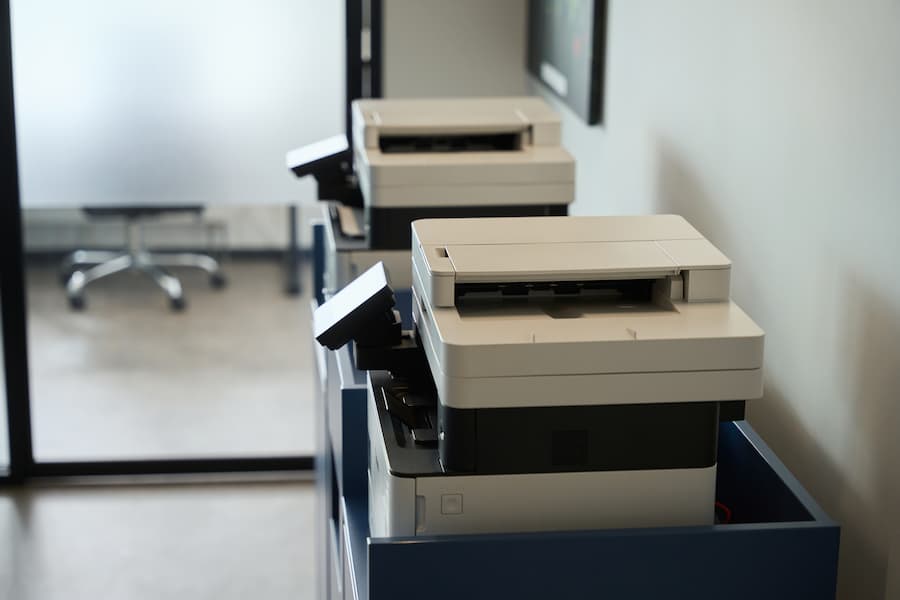
For businesses that need high-speed, high-volume printing, commercial copiers like the Xerox Altalink or Xerox Versalink are excellent choices. These models are designed for heavy-duty use and come with features like large paper trays, fast print speeds, and advanced document management tools. They are ideal for larger businesses or departments with significant printing demands.
On the other hand, smaller businesses or offices that need a more compact and cost-effective solution might opt for a multifunction printer like the HP LaserJet series. These machines combine printing, scanning, copying, and sometimes faxing into a single device, saving space and reducing the need for multiple machines. They are perfect for small to medium-sized businesses that require versatility but don’t have the space or budget for large, commercial copiers.
How to Choose a Reputable Leasing Company
Choosing the right leasing company is just as important as selecting the right copier or printer. A reputable leasing company will offer transparent terms, competitive pricing, and excellent customer service. When evaluating potential leasing partners, businesses should consider the following factors:
Reputation
Look for companies with a solid track record and positive customer reviews. A reputable leasing company will have experience in the industry and a history of providing reliable service.
Leasing Options
Different companies offer different types of leases, from short-term agreements to longer, more flexible contracts. Businesses should choose a leasing company that provides options that fit their specific needs and budget.
Maintenance and Support
A good leasing company will offer maintenance and repair services as part of the lease agreement. This ensures that businesses are not left dealing with equipment breakdowns or costly repairs on their own.
Customer Service
Reliable customer support is essential. Whether it’s a question about the lease agreement or a request for service, businesses should choose a leasing company that is responsive and easy to work with.
Evaluating Leasing Offers
Not all leasing offers are created equal, and it’s crucial to carefully evaluate the terms of each offer before making a decision. Some companies may offer lower monthly payments but include additional fees or restrictions that could increase the total cost of the lease. Others may provide more comprehensive service packages, which can add value in the long run.
What People May Also Ask
What is the typical cost of leasing a copier?
The cost of leasing a copier can vary depending on the model, lease term, and services included. On average, businesses can expect to pay between $100 and $500 per month. The monthly lease fee often fits within a business’s specific needs, making it easier to manage business operations without significant upfront expenses.
Is it better to lease or buy an office printer?
This depends on your business needs and budget, as well as how often you need to upgrade your equipment. Leasing is ideal for businesses looking to avoid large upfront costs and maintain flexibility, especially for small offices or companies with rapidly changing technology needs. Buying a copier outright may be a better fit for businesses that prefer ownership and have long-term stability. It’s essential to weigh the cons of buying an office printer and compare it with leasing options.
What is included in a copier lease agreement?
Most copier lease agreements cover the copier itself, the monthly lease payment, and often maintenance services like repairs and replacement parts. Businesses should carefully review the agreement to ensure it meets your business requirements, including options for technology upgrades and copier features that fit your specific business needs.
What are the additional costs associated with leasing a copier?
Additional costs can include overage charges for exceeding the monthly print limit, early termination fees, and optional upgrades like color printing. When selecting a lease, make sure to account for these costs to ensure the solution fits within your business needs and budget and won't disrupt your monthly lease payments.
How long does a copier lease term usually last?
Copier lease terms typically range from one to five years. Longer lease terms often result in lower monthly lease payments. It’s important to choose a lease term that fits your business operations and offers flexibility to upgrade or extend as your needs evolve.
What happens at the end of a copier lease term?
At the end of the lease term, businesses typically have the option to return the copier, extend the lease, or purchase the copier for a reduced price. These options allow for flexibility depending on whether the copier still meets your business needs or if an upgrade is necessary to keep up with changing business operations.
Can I upgrade or change the copier during the lease term?
Yes, some different leasing agreements allow businesses to upgrade or change their equipment during the lease term. This ensures that your copier or printer continues to fit your business as needs change, though it may involve additional costs or adjusted lease terms.
What types of maintenance services are included in copier leases?
Many copier leases include regular maintenance services, covering repairs and replacement parts to ensure your equipment remains in good condition throughout the lease. This is an excellent solution for your business, as it minimizes downtime and keeps your copier functioning efficiently.
Leasing a copier or printer provides businesses with a cost-effective and flexible solution tailored to specific business needs. By avoiding large upfront costs, enjoying predictable monthly lease payments, and accessing the latest technology, businesses can maintain smooth business operations. With the right lease agreement in place, your copier will always meet your business needs, offering peace of mind. Contact us today to learn more about copier leasing and to find the best solution that fits your business.




